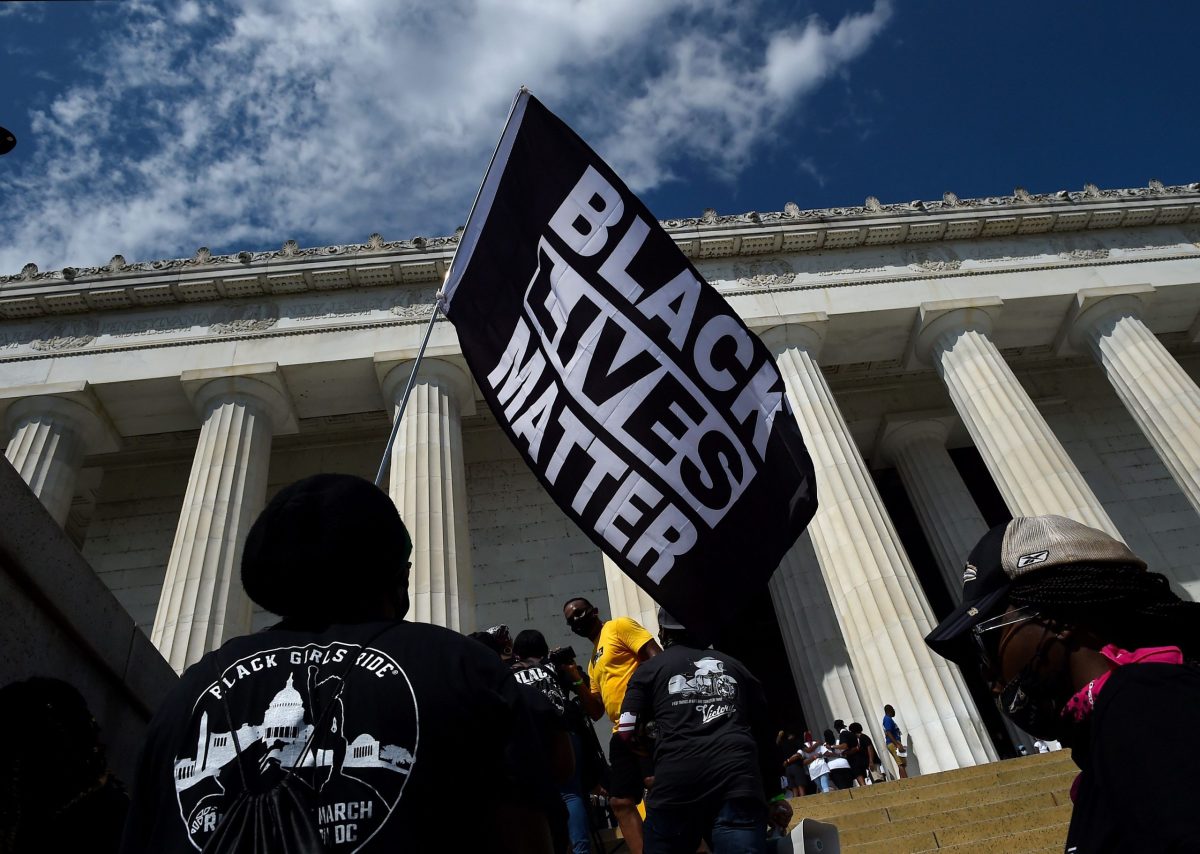BY MAKINI BRICE AND NANDITA BOSE
Thousands of people gathered on Friday to march in Washington, D.C. to denounce racism, protest police brutality and commemorate the anniversary of the march in 1963 where civil rights leader Martin Luther King Jr made his “I Have a Dream” speech.
In his historic and often-repeated speech, King envisioned a time his children would “one day live in a nation where they will not be judged by the color of their skin but by the content of their character.”
Its 57th anniversary comes at the end of a summer of racial unrest and nationwide protests, sparked by the death of George Floyd, an unarmed African American, after a Minneapolis police officer kneeled on his neck for nearly nine minutes.
Corrada Shelby, a 49-year-old human resources executive, said she joined the march at the base of the Lincoln Memorial to ensure the movement for racial equality does not fizzle out.
“This year the march is extra special because it is a continuation of the George Floyd protests,” she said. “I’m here to empower our people and to make sure we continue the fight.”
Earlier this week, protests seized Kenosha, Wisconsin, after police officers shot another African-American man, Jacob Blake, multiple times in front of his young children while his back was turned. Blake survived the shooting, but has been paralyzed, his lawyers told reporters this week.
Friday’s protest, called “Commitment March: Get Your Knee Off Our Necks,” was planned in the wake of Floyd’s death by civil rights activist Reverend Al Sharpton’s National Action Network.
Ben Crump, the civil rights lawyer representing Blake and Floyd’s family, will speak, as will Sharpton, members of Floyd’s family, and King’s son, Martin Luther King III, among others.
After speeches at the Lincoln Memorial, participants will walk to the Martin Luther King memorial about a half mile away.
This summer’s uprisings drew parallels to those seen in 1968, after King’s own murder, five years after his famous speech.
The march also comes as Black people suffered disproportionately from the coronavirus pandemic, which has killed about 180,000 Americans. Blacks have been more likely to be sickened and die from the virus and to lose jobs from the economic fallout.
Washington requires people coming from so-called coronavirus high-risk states, which currently includes both Wisconsin and Minnesota, to quarantine for 14 days when visiting the district.
Organizers say they are taking the pandemic into account by restricting access to buses from those states, distributing masks and checking temperatures. There will also be free COVID-19 testing provided at the event.
At one point, a speaker directed attendees to stand with their arms out to ensure there was enough distance between them.
In addition to the live march, there will be a virtual commemoration featuring Reverend William Barber, a prominent civil rights activist and the co-chair of the Poor People’s Campaign. It will also include civil rights activists, politicians, artists and entertainers.
Kerrigan Williams, a founder of Freedom Fighters DC, said the group was organizing its own march on Friday after the March on Washington to promote a more radical agenda that includes replacing police departments with other public safety systems.
She said the group believes “the march on Washington is too reformist and performative for our taste.”
Separately, a wing of the Movement for Black Lives, a network of Black activists and organizations, has scheduled the “Black National Convention” on Friday night, following national conventions by the Democratic and Republican parties over the past two weeks.
The three-hour livestreamed convention, which has been in the works since last fall, will feature about 100 Black activists and discussions about criminal justice and capitalism, said Jessica Byrd, an organizer for the event.
“We feel like it’s going to be a Black political Homecoming weekend,” she said.

































